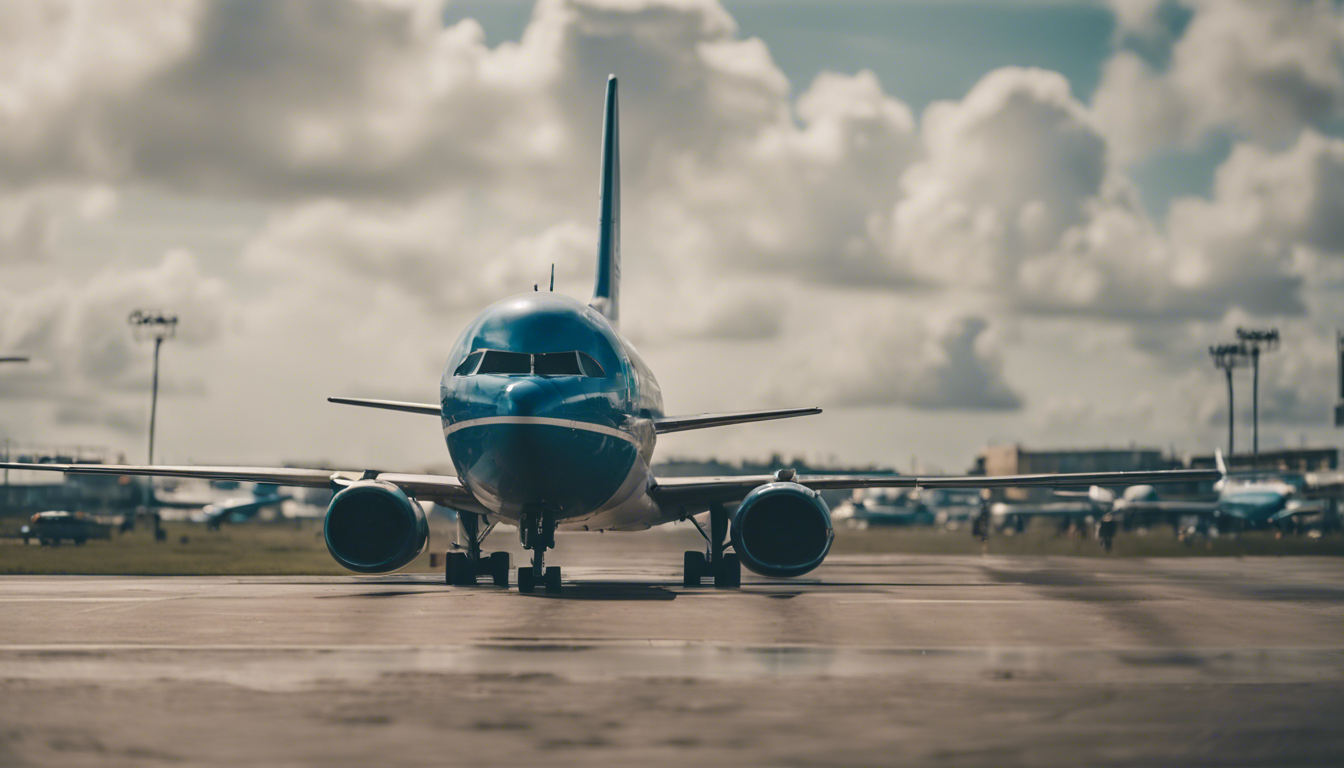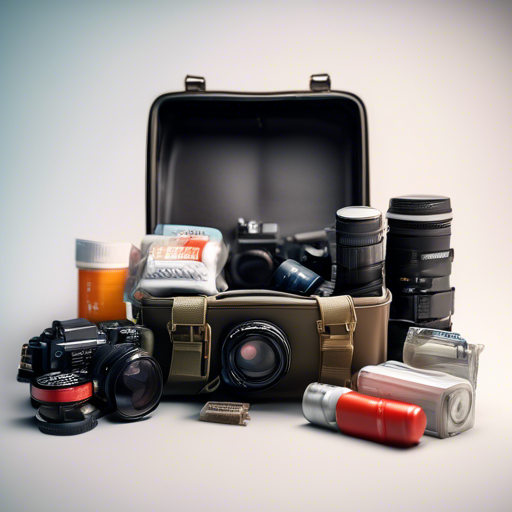Canadian nationals holding a valid Canadian passport or a Canadian permanent resident card do not need a visa to enter Cuba. They can travel with their valid passports (and PR card) and the tourist card (some people refer to this as to a Visa, but it's not) which cost is included in your holiday package (provided usually onboard, an hour before landing or at the airline counter at airports in Canada at time of check in).
NOTE: It's important to keep your Cuba tourist card in a safe place and try not to lose it during your holiday as it must be shown to immigration authorities before you board the plane back home and if you fail to produce it on the spot you could be delayed while they run checks, risking losing your flight.
Canadian passport should be valid for at least one week after the return date.
Health insurance: You must show proof of valid health insurance to enter Cuba. All health insurance policies are recognized in Cuba, except those issued by U.S. insurance companies. However, the Cuban immigration authorities will decide which proof of health insurance is acceptable.
All health insurance policies are recognized in Cuba, except those issued by U.S. insurance companies. However, the Cuban immigration authorities will decide which proof of health insurance is acceptable. Proof of health insurance may be:
- an insurance policy
- an insurance certificate
- a Canadian provincial health insurance card
If you don’t have proof of health insurance or if the proof you present doesn’t satisfy the Cuban immigration authorities, you may have to obtain health insurance from a Cuban insurance company upon arrival. This insurance may have limited coverage. Local authorities may refuse your entry to the country.
Canadian provincial health care coverage provides very limited coverage outside Canada. It won’t pay for medical bills up-front. It does not include air evacuation, and neither does Cuban health insurance.
Cuban authorities won’t let you leave the country with outstanding medical bills, which are payable by credit card only. You will need to remain in Cuba until all debts are paid.
- Make sure you purchase the best health insurance you can afford
- Ensure the insurance includes medical evacuation and hospital stays
- We recommend getting at least Emergency medical insurance. It will cost you less than $5 a day.
Arrival form: You must provide information on your arrival in Cuba via an online form within 72 hours before entering the country. Once done, you will receive a QR code by email. You must show an electronic or printed version of the QR code to authorities upon arrival.
Follow this link and fill in the form: https://dviajeros.mitrans.gob.cu/inicio
But the page is in Spanish ? No problem, follow these short instructions:
Note the top right corner of the page:

Click on the letter "A" and chose your desired language from the drop-down menu:
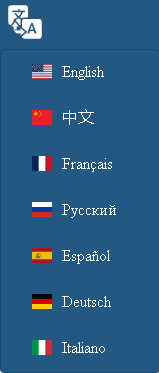
Click on the "Form request" button:

Note that not all the fields are required. Below is just an example to help you with the form:
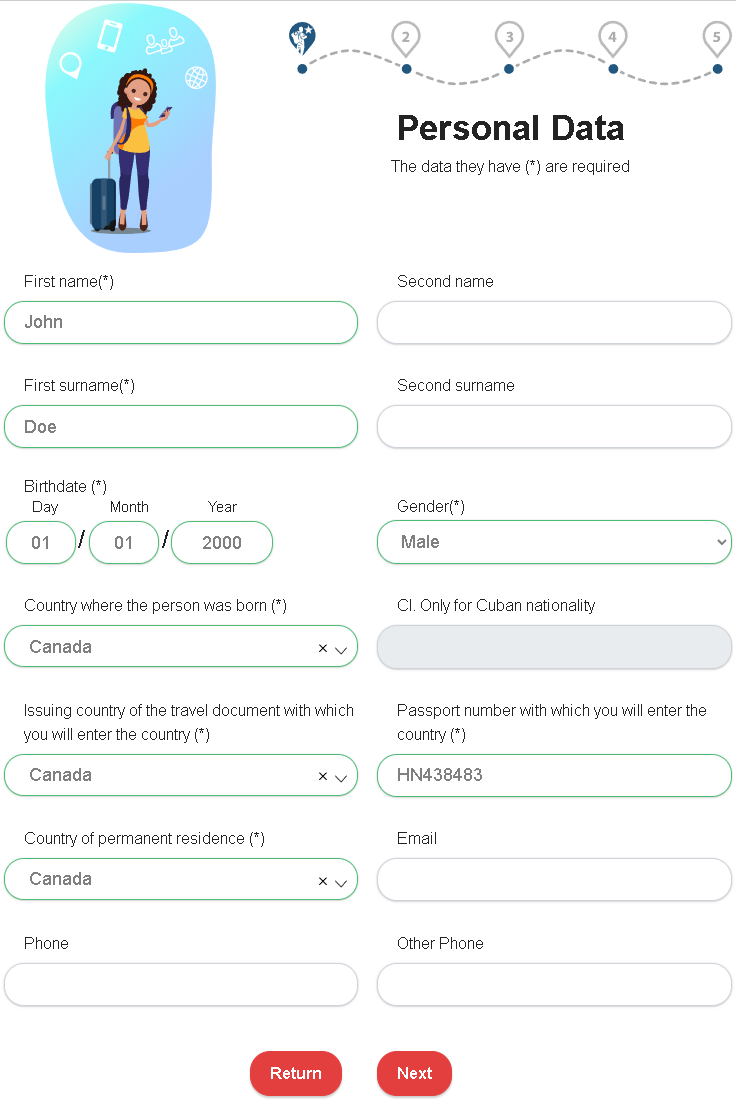
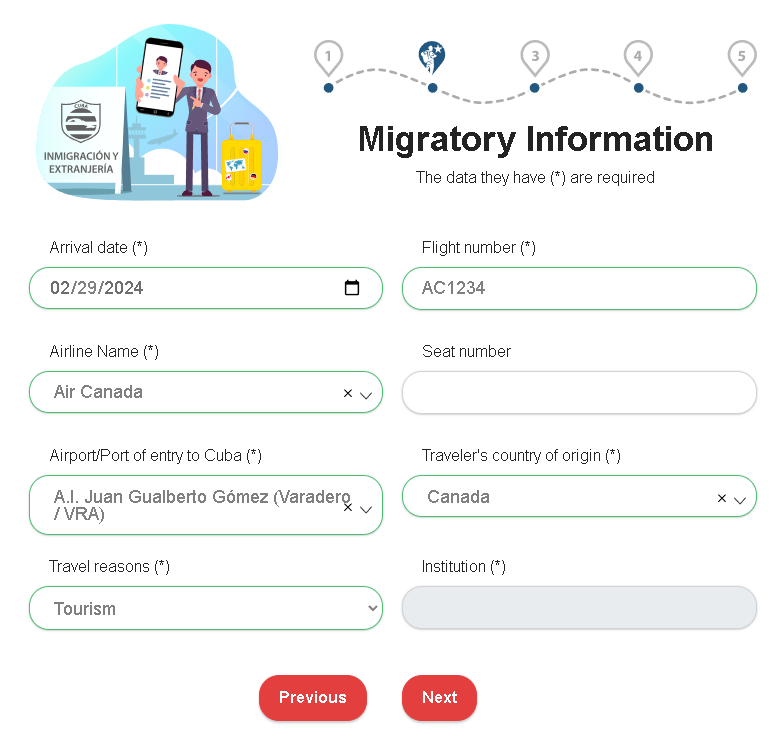
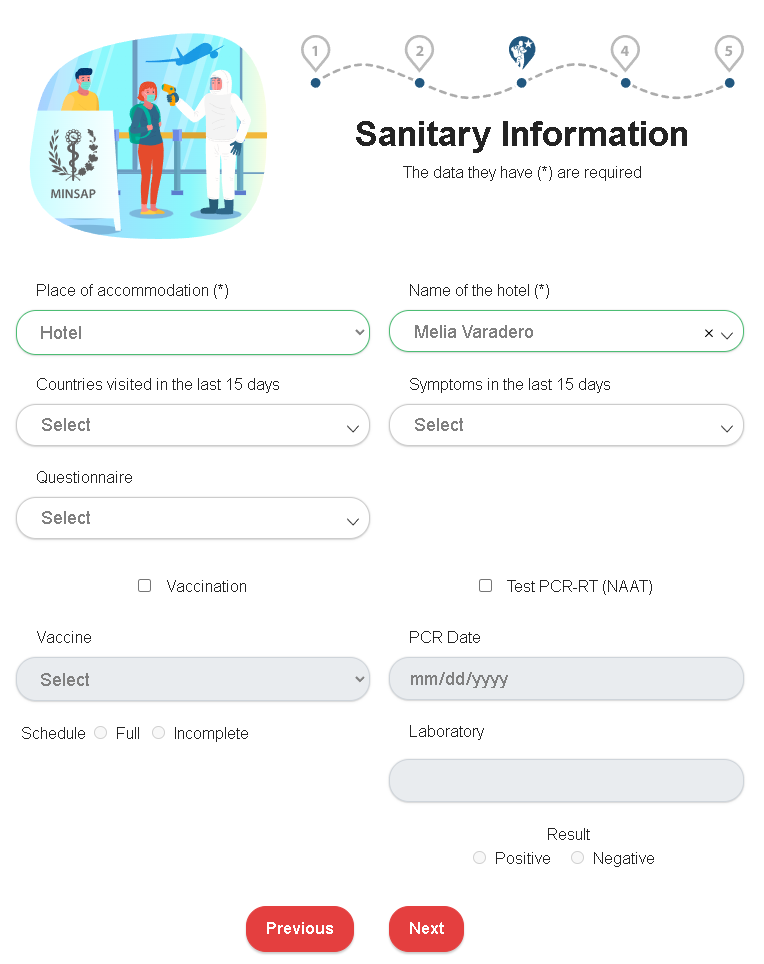
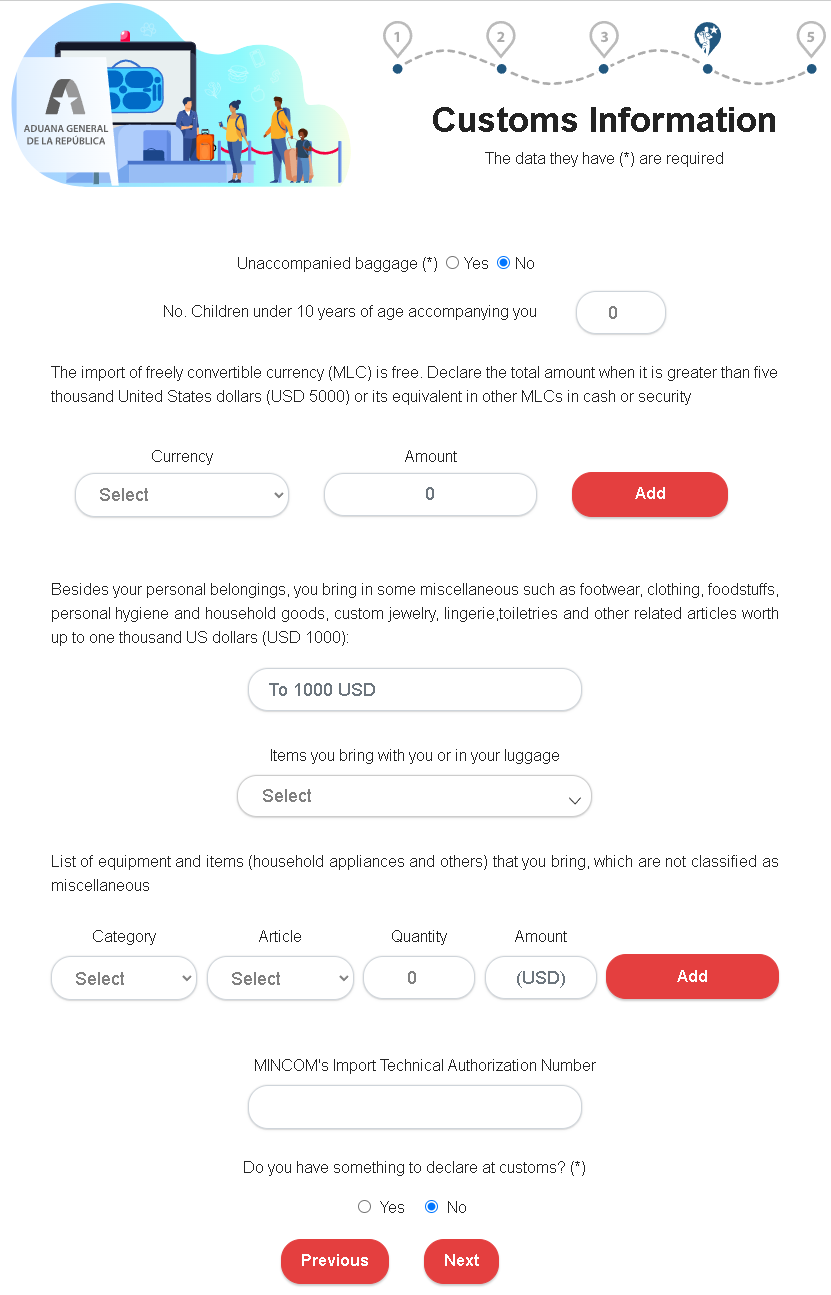
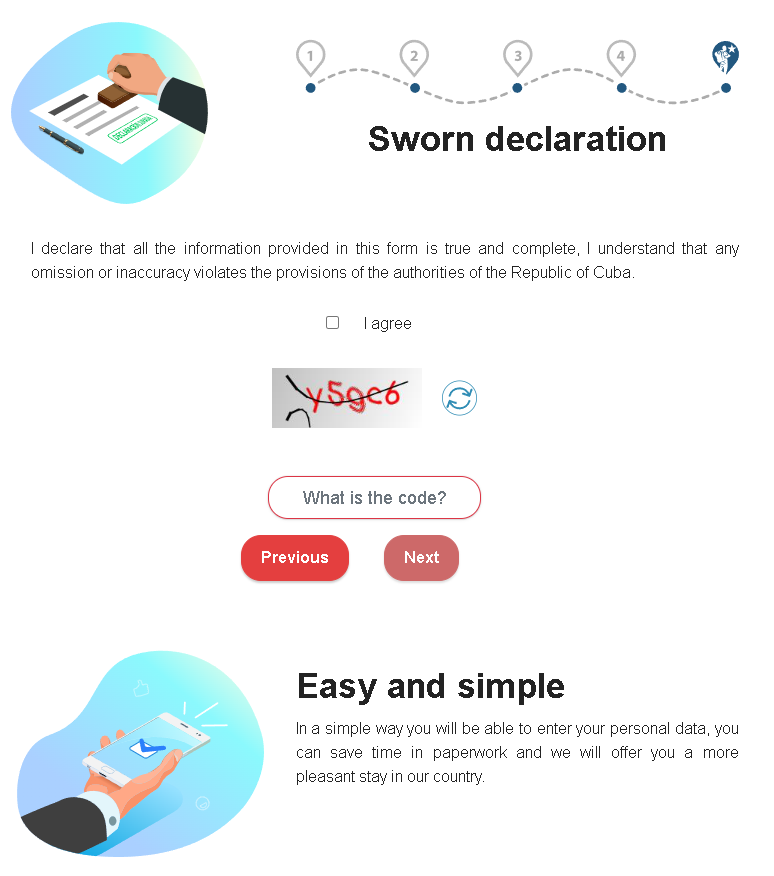
Finish the application by checking "I agree", enter the security code and click next. If you entered an email in Step 1, you will get a confirmation email with a link to your online application. If not, in the next step you will get a downloadable pdf with QR code that you will require to show at entry. You can simply show it on your phone, or print a copy of it.
This also applies for Citizens from other countries holding either of the following categories:
Valid Work Permit (holding multiple entry visa on passports)
Valid Student Permit (holding multiple entry visa on passports)
If you do not fall in either of the categories mentioned above, please contact the Cuban Consulate – Tourism Section at [email protected]
Other entry requirements:
Customs officials will ask you to show them:
- a return or onward ticket
- proof of sufficient funds to cover your stay
- proof that you have a place to stay if arriving with “air only” tickets
Dual citizenship
If you’re both a Canadian and Cuban citizen, you must:
- present your valid Cuban passport to the immigration authorities to enter Cuba
- have a valid Canadian passport to return to Canada
If you were born in Cuba, you should contact a Cuban government office in Canada before you leave to ensure compliance with Cuban regulations, regardless of your current citizenship. Failure to do so may result in your being refused entry into Cuba or being detained upon entry.
Canadian permanent residentsYou will not be able to leave Cuba if you are a Canadian permanent resident and are without a valid permanent resident card. If your card is lost or stolen, you must contact the Canadian Embassy in Havana to obtain a travel document that will allow you to leave the country. This procedure can take up to 10 working days. Once the document is ready, you'll need to make an appointment with the immigration section of the Canadian Embassy in Havana to collect it before returning to Canada.
Additional information that may not apply to regular tourists going on vacation via All inclusive package:
If you are sailing to Cuba, be sure to contact port authorities before you reach jurisdictional waters (12 miles from the base line). Use these communication channels: -HF (SSB) channel 2760 (national coastal network) and 2790 (tourism network); or -VHF channel 68 (national coastal network) and 16 (tourism network).
Port authorities will ask you for the following information:
- name of yacht
- flag
- port of registry
- last port of call
- port of arrival
- estimated time of arrival (ETA)
- type of craft
- colour of craft
- number of persons on board.
You must follow the instructions given by the port authorities and remain on board until all legal formalities are concluded.
If you plan to fly to Cuba on a private plane, you must send an operational request for approval of your flight plan in a telex addressed to the:
Regimen de Vuelos de Aeronautica Civil de Cuba, La Habana Telex: 51727 ACVCU In the request, you must specify:
- whether the plane is private
- the type of aircraft
- registration number and class
- starting point
- pilot’s name
- expected date, place and time of arrival
- objective of the trip.
Visitors who are well prepared and adhere to a few simple rules should have smooth trips through customs, both when entering and leaving Cuba. Key information to remember:
Cuban customs laws prohibits any imports of pornographic material, narcotics drugs, live animals and firearms, although these last ones can be authorized by the organization in charge of this tourist modality when these are for the sport of hunting. Any possession, consumption and traffic of narcotic drugs and other substances are penalized, except for those of personal use accompanied by the corresponding doctor prescription letter.
What can I bring into Cuba ?
In addition to their personal jewelry, cameras and other valuables, visitors are allowed to bring into Cuba, duty free, two bottles of liquor, one carton of cigarettes and up to 10 kilograms of medicine. Gifts up to a value of $250 US can also be brought in. Of that, $50 is duty-free; the rest is 100 per cent taxable.
Narcotics and firearms, except for authorized hunting weapons, are not allowed into the country. No restrictions exist on the amount of money a visitor can bring into the country, but amounts over $5,000 US should be declared.
(new) VCR and DVD players are now allowed into Cuba:
Cuban customs has lifted the restrictions on the importation of VCR and DVD players into Cuba. Starting May 1st, 2007 travelers can bring them into the country regardless the type, brand or model, including the built-in ones in other equipments.
Tourists are allowed to take their personal effects which include the articles (new or used) that they reasonably need for their holidays (according the length and purpose of the trip), plus: sport equipment, jewels, photographic camera, camcorder, cellular phones, blackberries, laptops, Ipods, MP3 players, video games, hair dryers, electric shavers, binoculars, one portable radio receiver, tape recorder, one portable music instrument and a sound recording device.
It's prohibited to bring into the country: narcotics, explosives, pornography, any item (including literature) intended to be used against the national security, animals and plants regulated under the Convention on International Trade in Endangered Species of Wild Fauna and Flora, GPS, cordless phones (for the household) that operate in bands different than 40-49 MHz and 2,4 and 5 GHz and household appliances: freezers, air conditioners, electric kitchens and furnaces, electric ovens, electric showers, electric fryers, electric water heaters, irons (travel irons are allowed), toasters and any spare electrical parts for the above.
For further information and complete list of the prohibited articles, please visit the website: http://www.aduana.gob.cu/index.php/english


